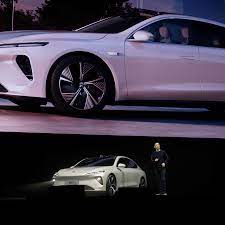Electric vehicle battery swapping system allows drivers to switch depleted batteries for charged ones in minutes instead of hours, saving time spent charging EVs. Battery swapping systems rely on a network of standardized battery packs that can be easily removed from the vehicle floor and replaced with fully charged modules stored at swapping stations. With battery packs withholding around 80% of an EV’s overall cost, swapping offers an alternative to traditional charging and helps lower the purchase price for electric vehicles. These systems allow drivers to drive further without waiting for the battery to charge and eliminate range anxiety as drivers have multiple options to extend their trips across networks of fast swapping stations.
The global Electric Vehicle Battery Swapping System Market is estimated to be valued at US$ 1027 Mn in 2023 and is expected to exhibit a CAGR of 3.1% over the forecast period 2023 to 2030, as highlighted in a new report published by Coherent Market Insights.
Market key trends
Developments in battery swapping technologies continues to drive adoption of these systems. Companies are developing advanced swapping station designs that allow fast and automated swapping using robotics. This significantly reduces swapping time to just a few minutes. New battery pack designs also enable drive-through swapping without stopping the vehicle. Standardization of batteries and communications protocols between vehicles and stations is also gaining traction to facilitate swapping across different vehicle brands. Governments in countries like China, India and Israel are implementing favorable policies and incentives to encourage EV battery-swapping networks in line with their sustainability goals. Wider availability of swapping infrastructure is expected to boost consumer confidence in electric vehicles and their seamless usability.
Porter’s Analysis
Threat of new entrants: The threat of new entrants is moderate as substantial capital investment and technology are required to set up battery swapping infrastructure. However, existing players in the electric vehicle industry can easily enter this market.
Bargaining power of buyers: The bargaining power of buyers is high as multiple service providers offer battery swapping services. Buyers can easily switch between service providers based on price and service quality.
Bargaining power of suppliers: The bargaining power of suppliers is moderate as they have to deal with stringent quality standards set by service providers and electric vehicle OEMs.
Threat of new substitutes: The threat of new substitutes is low as battery swapping provides a faster refueling solution compared to traditional battery charging methods.
Competitive rivalry: The competitive rivalry is intense among the key players to gain greater market share through expanding battery swapping network coverage and partnering with electric vehicle manufacturers.
Key Takeaways
The global Electric Vehicle Battery Swapping System Market Demand is expected to witness high growth. The global Electric Vehicle Battery Swapping System Market is estimated to be valued at US$ 1027 Mn in 2023 and is expected to exhibit a CAGR of 3.1% over the forecast period 2023 to 2030.
Asia Pacific region holds the major share in the global market accounting for over 35% share. China is the fastest-growing market and has emerged as the global leader in EV battery-swapping infrastructure and adoption. Countries like India and Japan are also actively promoting battery swapping through subsidies and partnerships with EV OEMs.
Key players: Key players operating in the Electric Vehicle Battery Swapping System market are Clean Harbors, Dulsco LLC, National Response Corporation (NRC), Tradebe Environmental Services, SPX Flow Inc., Midwestern Services Inc., HydroChemPSC, Scanjet Group AB, Ecolab Inc., Veolia Environnement S.A., PSC Industrial Services, Enva Group, Kärcher, Thompson Industrial Services LLC, Cuzco Enterprises. NIO, one of the leading EV manufacturers in China, owns over 1,500 battery-swapping stations across the country.
*Note:
1. Source: Coherent Market Insights, Public sources, Desk research
2. We have leveraged AI tools to mine information and compile it



